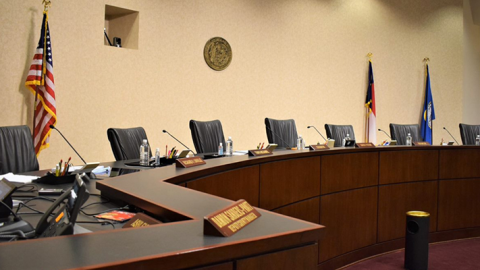-
At least two theaters in North Carolina showed films with sound in the 1920s.
-
The top vote-getter will face the winner of the Democratic primary between incumbent Dan Besse and realtor Que Shavers.
-
Thompson joined GPD in 2003 and was named police chief in 2022. He steps down after nearly four years in the role.
-
The initiative provides an alternative route for teacher assistants, substitutes and those changing careers to earn their educator’s license.
-
City officials say waiting to mow helps protect ground-nesting bees.
-
Several nonprofit leaders are running for Guilford County Board of Education District 4 and 6 seats in the upcoming primary election.
-
Students in and out of the state can expect to pay anywhere from 2% to 10% more to attend the state's universities
-
Michael Jordan and Denny Hamlin’s 23XI Racing is surging in NASCAR with two wins to open the 2026 season.
-
A first-time candidate is taking on a longtime officeholder in the Democratic race for an at-large seat on the Forsyth County Board of Commissioners
-
Food pantry workers in the High Country are seeing a spike in the number of clients they serve following the passage of the One Big Beautiful Bill Act.
-
Five candidates will compete in the Democratic primary for two seats on the Guilford County Board of Commissioners.
-
Incumbent Randolph County Commissioner David Allen was one of two members to vote against the library board's dismissal. His challenger, Carrie Slatosky, says removing the trustees was the right move.















